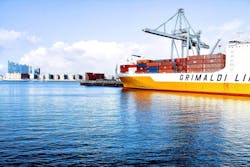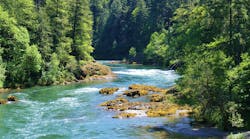Hawaii Shipyard to Limit Storm Water Discharge Pollution
The U.S. EPA reached an agreement with Keehi Marine Inc. to reduce pollution in its storm water discharges to Keehi Lagoon in Honolulu, Hawaii, and the Pacific Ocean.
"Ship repair facilities must have storm water pollution controls in place to protect coastal waters and coral reefs,” said EPA Pacific Southwest Regional Administrator Mike Stoker. "We are pleased the company has already begun work to improve their operations and prevent pollution–actions that will help improve Oahu’s water quality.”
By November, the Honolulu boatyard must ensure that discharges of copper, lead, zinc and other pollutants meet the requirements of its state storm water discharge permit. Keehi Marine also will develop an updated storm water pollution control plan, conduct additional sampling and monitoring, and submit a final report to EPA once all requirements of the administrative order have been completed.
Based on a tip from the public, EPA performed an inspection in April 2017 at Keehi Marine and found accumulation of fine sediment and debris without controls that prevent storm water and associated debris from entering storm water discharges and flowing into Keehi Lagoon and the Pacific Ocean. They also found evidence of recent flooding at a covered work area indicating pollutants had washed offsite. Finally, they found that from Sept. 2016 to Dec. 2017, the facility reported five incidents in which storm water monitoring results showed copper, lead and zinc were discharged above permit limits.
Many industrial operations, such as material handling and storage and equipment maintenance and cleaning, occur outside. Rainfall runoff flowing through such facilities can pick up pollutants and transport them directly to nearby waterways and degrade water quality. Federal regulations require facilities to obtain discharge permits, implement storm water best management practices, and follow a storm water pollution control plan.


